Christa Carver, Lindsey Wiggins, Alyssa Ziegler
Carl Siebert Ph.D. – EDU 651
Boise International Committee Rescue
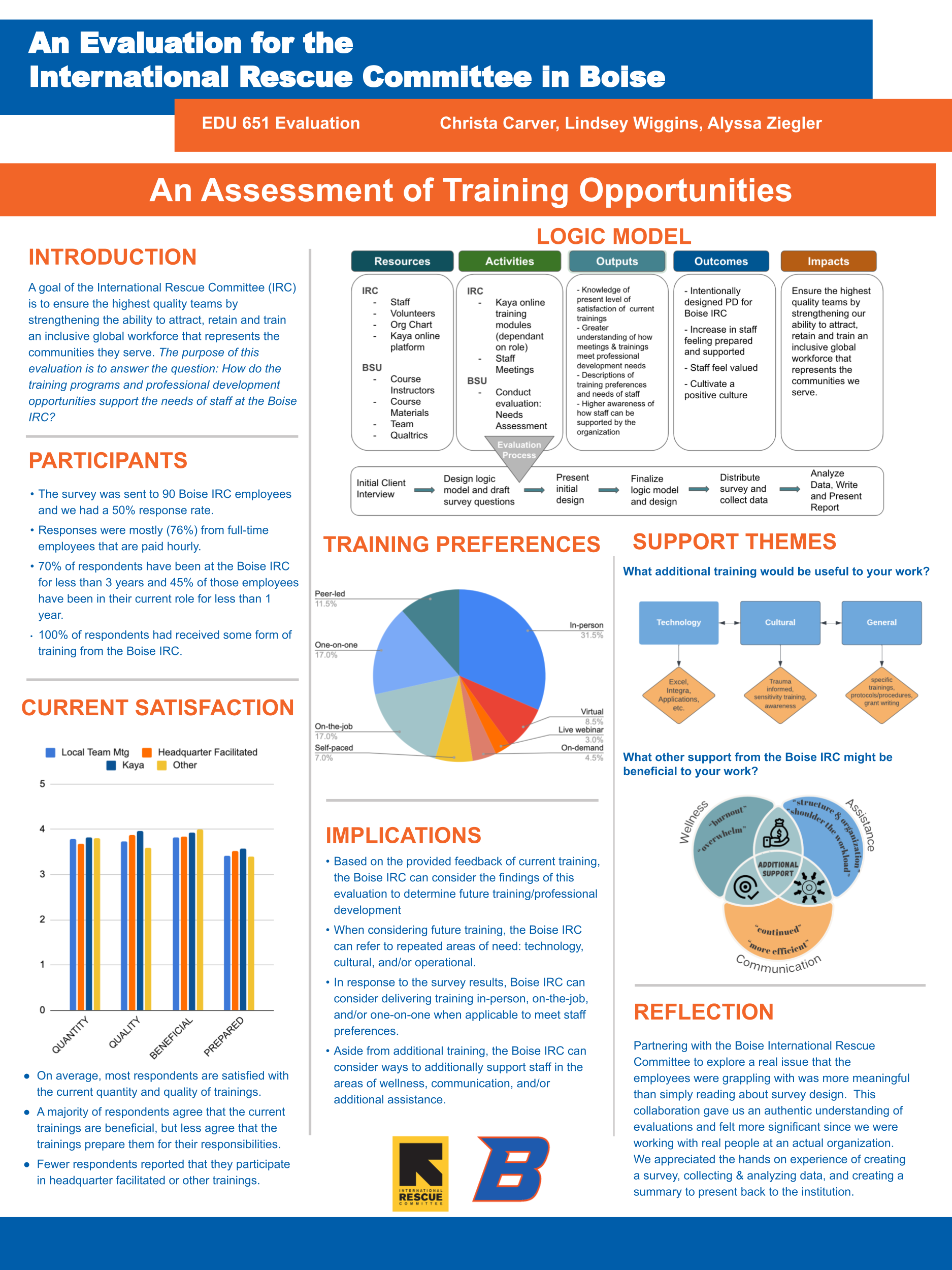
Introduction
Learning Goals:
The purpose of this evaluation is to answer the question: How do the training programs and professional development opportunities support the needs of staff at the Boise IRC?
Reflection
Partnering with the Boise International Rescue Committee to explore a real issue that the employees were grappling with was more meaningful than simply reading about survey design. This collaboration gave us an authentic understanding of evaluations and felt more significant since we were working with real people at an actual organization. We appreciated the hands on experience of creating a survey, collecting & analyzing data, and creating a summary to present back to the institution.
Community Partner: International Rescue Committee
Mission Statement:
A goal of the International Rescue Committee (IRC) is to ensure the highest quality teams by strengthening the ability to attract, retain and train a global workforce that represents the communities they serve.
Methods
Participants:
- The survey was sent to 90 Boise IRC employees and we had a 50% response rate.
- Responses were mostly (76%) from full-time employees that are paid hourly.
- 70% of respondents have been at the Boise IRC for less than 3 years and 45% of those employees have been in their current role for less than 1 year.
- 100% of respondents had received some form of training from the Boise IRC.
Current Satisfaction:
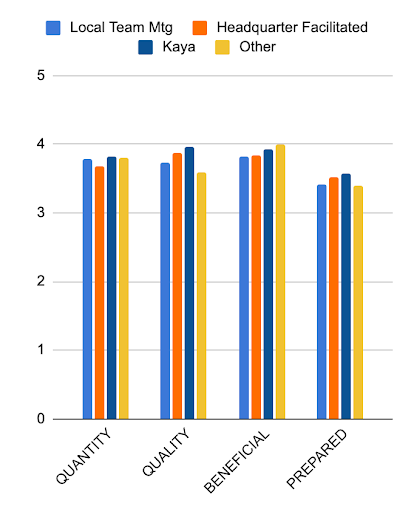
On average, most respondents are satisfied with the current quantity and quality of trainings. A majority of respondents agree that the current trainings are beneficial, but less agree that the trainings prepare them for their responsibilities. Fewer respondents reported that they participate in headquarter facilitated or other trainings.
Logic Model:
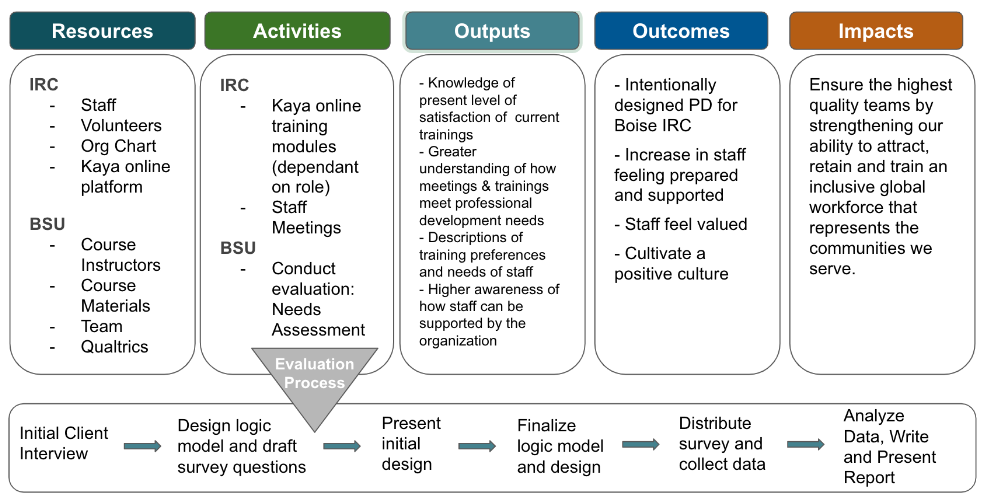
Results
Training Preferences:
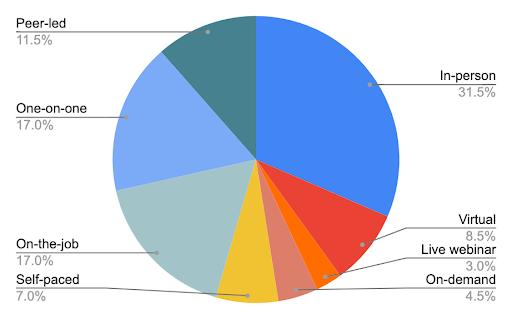
Support Themes:
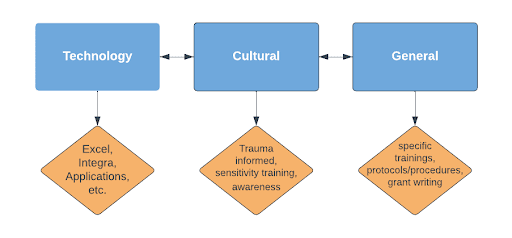
What additional training would be useful to your work?
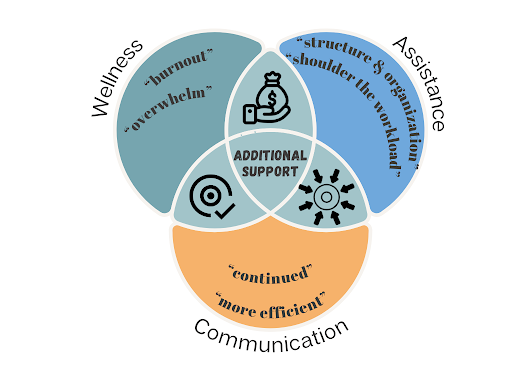
What other support from the Boise IRC might be beneficial to your work?
Implications:
- Based on the provided feedback of current training, the Boise IRC can consider the findings of this evaluation to determine future training/professional development
- When considering future training, the Boise IRC can refer to repeated areas of need: technology, cultural, and/or operational.
- In response to the survey results, Boise IRC can consider delivering training in-person, on-the-job, and/or one-on-one when applicable to meet staff preferences.
- Aside from additional training, the Boise IRC can consider ways to additionally support staff in the areas of wellness, communication, and/or additional assistance.